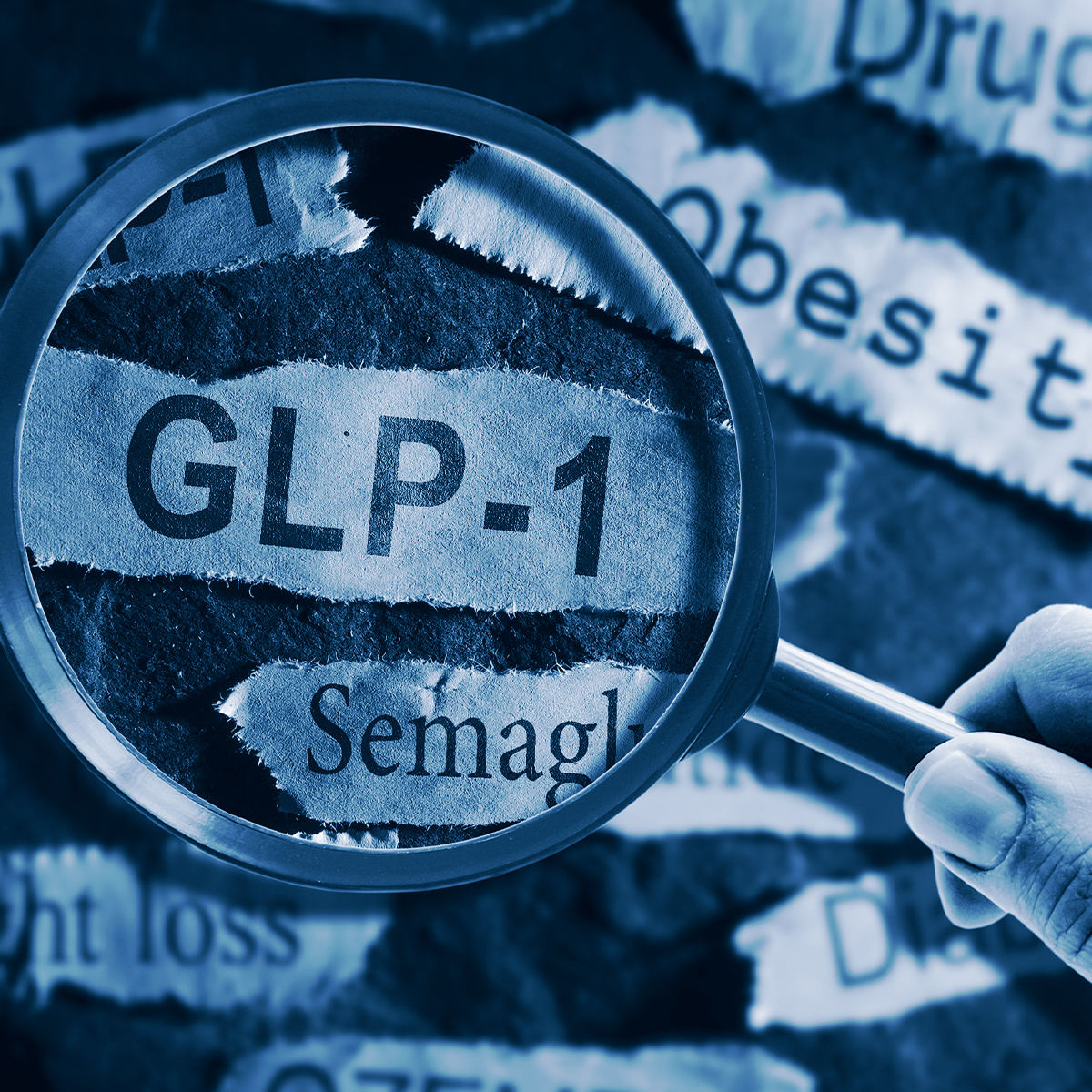-
Property & Casualty
Property & Casualty Overview

Property & Casualty
We offer a full range of reinsurance products and the expertise of our talented reinsurance team.
Expertise
Publication
Six Things We Can Do to Curb Legal System Abuse
Publication
Is Human Trafficking the Next Big Liability Exposure for Insurers?
Publication
When Likes Turn to Lawsuits – Social Media Addiction and the Insurance Fallout
Publication
Generative Artificial Intelligence and Its Implications for Weather and Climate Risk Management in Insurance
Publication
Creating Strong Reinsurance Submissions That Drive Better Outcomes
Publication
Do Commercial General Liability Policies Cover Mental Anguish From Sexual Abuse? -
Life & Health
Life & Health Overview

Life & Health
We offer a full range of reinsurance products and the expertise of our talented reinsurance team.

Publication
Group Medical EOI Underwriting – Snapshot of U.S. Benchmark Survey
Publication
Next Gen Underwriting Insights – 2025 Survey Results & Confusion Matrix Considerations [Webinar]
Publication
GLP-1 Receptor Agonists – From Evolution to Revolution U.S. Industry Events
U.S. Industry Events
Publication
Always On: Understanding New Age Addictions and Their Implications for Disability Insurance
Publication
Dying Gracefully – Legal, Ethical, and Insurance Perspectives on Medical Assistance in Dying -
Knowledge Center
Knowledge Center Overview

Knowledge Center
Our global experts share their insights on insurance industry topics.
Trending Topics -
About Us
About Us OverviewCorporate Information

Meet Gen Re
Gen Re delivers reinsurance solutions to the Life & Health and Property & Casualty insurance industries.
- Careers Careers
Dying Gracefully – Legal, Ethical, and Insurance Perspectives on Medical Assistance in Dying

September 25, 2025
Annika Luckmann,
Dr. Chris Ball,
Dr. John O’Brien
English
Medical assistance in dying (MAID) – encompassing both physician-assisted suicide and voluntary active euthanasia – is no longer a marginal phenomenon. It has become increasingly common, with more than 35,000 recorded deaths in eight countries which have jurisdictions allowing MAID.1 In Canada, medically assisted deaths increased from 1,018 cases in 2016 to 10,092 in 2021 and 15,343 by 2023. Four percent of these cases involved individuals whose natural death was not expected within a foreseeable timeframe.2 Similar trends are observed in the Netherlands, Belgium, and Switzerland. The significant global increase, alongside new rules and regulations, shows that while MAID is not new, public attitudes towards it have transformed considerably.
This shift presents new challenges for the insurance industry. As legal frameworks evolve and public attitudes change, underwriters are faced with a complex question: How should risk be assessed when death may result not only from illness or accident, but also from a deliberate, medically supported decision?
Definitions and Legal Landscape
The terminology surrounding MAID varies across jurisdictions. For clarity, we use the following definitions:
- Assisted Suicide (AS) – A person receives medical support to end their own life, typically through a prescribed lethal medication.
- Assisted Dying (AD) – A healthcare professional administers a life-ending substance at the patient’s request.
- Euthanasia – A doctor intentionally ends a patient’s life to relieve suffering, with the patient’s explicit consent.
- Passive Assisted Dying – Renunciation of life-prolonging measures (while maintaining “basic care” and pain-relieving treatment).3
- Indirect Active Assisted Dying – Pain-relieving treatment with the acceptance of an (unintended) risk of shortening life.4
- Medically / Physician-assisted Dying – Physician-assisted dying refers to the involvement of doctors in measures intentionally devised to end a patient’s life. This may include the prescription of medication and/or its administration.5
- Palliative Care – Palliative care is aimed at improving the quality of life of patients and their families who are facing challenges associated with life-threatening illness, whether physical, psychological, social, or spiritual.6
Legal Status Across Jurisdictions
The modern history of AD begins with figures such as Dr. Jack Kevorkian in the U.S., who pioneered physician-assisted suicide in the 1990s. He aided more than 100 terminally ill people to bring about their death. He faced prosecutions for assisting suicides between 1994 and 1997 before being convicted of second-degree homicide in 1999 with an eight-year-prison-term.7 Critics of Kevorkian’s practice accused him of a lack of psychiatric evaluation of his patients before the act of AD, as well as violations of the patients’ autonomy and a general lack of medical oversight. Despite the fact that he faced prosecution, Kevorkian’s actions sparked debate and gradually shifted public attitudes and legislation.
Currently, legal approaches vary widely. In Canada, Belgium, the Netherlands, and Luxembourg, AS and AD are both permitted under specific conditions. In the U.S., MAID is legal in a number of states, typically restricted to terminally ill patients and involving only self-administered medication. In Germany, MAID is not punishable following a 2020 constitutional ruling but remains unregulated by statute. The UK parliament has recently approved legislation to allow MAID but this has yet to be fully ratified.8
These legal distinctions shape not only the frequency of MAID but also the demographic profiles of those who access it – an important consideration for insurers assessing mortality risk and policy implications.
Where AD has been legalised two criteria are usually applied either individually or in tandem: the presence of a terminal illness and intolerable suffering.
Terminal Illness
In most jurisdictions, patients must be certified by a physician as having a terminal illness, defined as an expected death within six to 12 months. For some individuals in this situation, their concern is maintaining autonomy and choosing for themselves how and when they will die, but they need medical involvement to support this aim.
Intolerable Suffering
Even with the very best palliative care some people will experience unbearable physical or emotional distress. Also, many individuals do not have access to adequate palliative care.9 For these groups AD is an option in many jurisdictions. Safeguards against withdrawing care or coercion of vulnerable people are paramount in these instances. Proper regulatory frameworks ensure effective safeguards, preventing individuals from needing to travel abroad to access AD.
Table 1 – Legal Approaches to AD/AS10
|
Jurisdictions where AD is legal on the basis of a terminal diagnosis |
Jurisdictions where AD/AS is legal because of intolerable suffering |
|---|---|
|
Australia |
Austria |
|
Austria |
Belgium |
|
Belgium |
Canada |
|
Canada |
Luxembourg |
|
Luxembourg |
Portugal |
|
New Zealand |
Spain |
|
Portugal |
Switzerland |
|
Spain |
The Netherlands |
|
Switzerland |
|
|
The Netherlands |
|
|
U.S. |
|
In discussions around MAID, it is crucial to recognise that the motivations behind such a profound decision often extend far beyond terminal diagnoses or physical pain. A recent exploration in Canada found that inadequate pain control or even the fear of future pain played a significant role in people seeking MAID.11 Other significant concerns included persistent fatigue and ongoing physical decline, which can severely limit an individual’s ability to function independently. Loss of autonomy – such as the inability to perform daily tasks or participate in meaningful life activities – can deepen feelings of dependency and erode a sense of self‑worth.
Beyond the physical, many people experience existential suffering marked by hopelessness, a loss of meaning and identity, and a profound fear of what lies ahead. Psychological distress – including depression, anxiety, and the fear of becoming a burden to loved ones – further compounds the emotional toll. Social factors including loneliness, social isolation, and the loss of one’s social role can intensify the desire for control over one’s dying process.
For many, the fear of future suffering, whether through anticipated physical decline, potential institutionalisation, or the loss of dignity, is a significant driver in choosing MAID. These layered, often interrelated, factors underscore the complexity of end-of-life decisions and the importance of holistic, compassionate care. An overview can be found in Table 2.
Table 2 – Overview of Factors Contributing to MAID Requests
|
Category |
Key factors |
|---|---|
|
Physical Suffering |
Inadequate pain control, fatigue, physical decline12 |
|
Loss of Autonomy |
Inability to perform daily activities, loss of meaningful engagement, dependency13 |
|
Existential Suffering |
Hopelessness, loss of meaning or identity, fear of the future14 |
|
Psychological Distress |
Depression, anxiety, fear of being a burden15 |
|
Social Factors |
Loneliness, social isolation, loss of social role16 |
|
Fear of Future Suffering |
Anticipated decline, institutionalisation, loss of dignity17 |
Demographic Trends in MAID – Who Chooses Assisted Dying?
Understanding who chooses MAID is essential for insurers seeking to assess risk accurately and ethically.
While still relatively uncommon, MAID accounts for approximately 2 to 5% of all deaths in jurisdictions where it is permitted.18 The Netherlands reported one of the highest rates, with 5.4% of all deaths attributed to MAID in 202319. However, demographic patterns of those who choose it are becoming increasingly well documented in many jurisdictions.20
Age Patterns
Contrary to common assumptions, MAID is not predominantly chosen by the very elderly. The highest proportion of MAID cases relative to all registered deaths is observed in the Netherlands among individuals aged 51 to 70. The absolute number of MAID cases increases with age, simply because morbidity increases.21
Considerations for Minors
The availability of AD for minors has been particularly contentious, with significantly less public support and widespread opposition.22 Most countries have not included minors in their legislation but Belgium, the Netherlands and Switzerland all have structures in place to allow AD for young people. Belgium was the first to allow AD for children in 2014, stipulating that they had to be terminally ill, in intolerable pain and had parental consent. The numbers remain very small.23
The decision-making capacity of minors is complex, difficult to assess and not solely based on chronological age. The procedures involved have to be clearly articulated and transparent.24
Gender Differences
MAID usage is relatively balanced between men and women. In Canada and the Netherlands, the gender split is nearly even. In Switzerland, women are slightly more likely to choose AS, especially under the age of 65. This contrasts sharply with non-assisted suicide, which is significantly more common among men.25
Medical Conditions
Cancer remains the most common underlying condition among MAID recipients, accounting for approximately 60 to 65% of cases in most jurisdictions. In the Netherlands, for example, cancer was the underlying condition in 66% of MAID cases in 2018,26 but this proportion declined to around 54% by 2024.27 As the share of cancer-related cases has decreased, other conditions have become more prominent, including neurological diseases such as amyotrophic lateral sclerosis (ALS), multimorbidity, and age-related frailty. In a smaller number of cases, dementia and psychiatric disorders have been cited as underlying reasons for MAID.28
Socioeconomic and Cultural Factors
MAID is more common among individuals with higher education levels, greater socioeconomic status, and lower levels of religious observance. In the U.S. state of Oregon, for example, MAID is disproportionately used by non-Hispanic white and Asian populations, but is rare among African Americans. In Belgium, rates are significantly higher in the Flemish-speaking regions than in the French-speaking ones.29
Mental Health Disorders in MAID
Requests for MAID in the context of mental health disorders remain controversial and rare, but the topic is gaining attention in some jurisdictions. For example, in Spain, Belgium, the Netherlands, and Switzerland, MAID may be sought due to intolerable suffering stemming from mental health disorders.30 Canada plans to review this issue in 2027.31
In the Netherlands, MAID notifications involving people experiencing psychiatric disorders increased from 68 cases (1.1%) in 201932 to 219 cases (2.2%) in 2024.33 Feelings common in mental health disorders, such as helplessness, hopelessness, and worthlessness, may contribute to the desire to die.34
Assessing a person’s capacity to consent to MAID is particularly challenging when mental health disorders are involved. The complexity of mental illness and the risk of impaired judgement require rigorous evaluation.
The social implications of an illness may be important considerations for individuals contemplating MAID. Discrimination, stigma and isolation experienced by many with mental illness are hard to live with and can lead to poverty, poor housing or homelessness.35
In Germany, the Federal Constitutional Court ruled in 2020 that AD is not punishable, provided the individual is capable of making a free and responsible decision.36 However, the presence of an acute mental disorder that might impair decision-making – such as severe depression – is grounds to doubt this capacity.
Consequently, AD based solely on mental disorders remains illegal and can lead to prosecution. In 2024, a doctor was prosecuted for manslaughter for assisting the suicide of a person with paranoid schizophrenia, illustrating the legal risks involved.37
Medical Involvement
The involvement of health professionals requires careful regulation. Doctors should not be able to impose their beliefs on competent, informed adults who wish to exercise their voluntary choice. Any legislation should contain a conscientious objection clause for those professionals who do not wish to participate. There is good evidence of divided opinions concerning MAID within the medical community.38
Broadly speaking, the most important guiding principles for a doctor are to do no harm, respect the autonomy of their patient and promote fairness and social justice. These principles form the basis of an important distinction between refusal or withdrawal of treatment and AD or euthanasia in which interventions are made with the specific intent to end the person’s life. This distinction is ethically and legally important.39
Medical involvement is most evident in prescribing and administering medication, but it is also essential at various other stages of the process. Debates remain about who should decide on prognosis: the treating doctor alone, or independent doctors based on the medical evidence, or judges taking medical advice.
Assessment of the person’s capacity to make the decision often falls to medical practitioners, particularly psychiatrists.
Implications for Underwriting and Risk Assessment
The growing prevalence and evolving profile of MAID users present nuanced considerations for insurers. While the absolute number of cases remains relatively small, and we do not anticipate major shifts in underwriting practices, the diversity of conditions and motivations behind MAID decisions – as well as the legal variability across jurisdictions – merit attention in broader policy planning and operational procedures.
A core principle of insurance is that policyholders should not intentionally cause the event for which they are insured. While the increasing visibility of assisted dying may prompt refinements in claims handling protocols and internal guidance, it does not necessitate a fundamental change in the underwriting approach.
Many Life insurance policies contain a terminal illness clause, permitting early payout upon diagnosis of a condition likely to result in death within 12 months. In jurisdictions where MAID is restricted to terminally ill patients (e.g., most U.S. states), this clause aligns well with the legal framework. However, in countries such as Canada, Belgium, and the Netherlands, MAID is increasingly accessed by individuals with chronic conditions, even in the absence of a formally diagnosed terminal illness. In this context, we foresee – for the time being – neither any need to revise existing underwriting practices nor the need to revise the terminal illness clause within Life insurance products.
Typically, Life insurance policies include an initial suicide exclusion period to mitigate moral hazard. The classification of MAID within this framework is complex. In jurisdictions where MAID is legally and medically regulated, it is often explicitly distinguished from suicide. However, if insurers intend to exclude MAID-related claims during the early period of coverage, this should be clearly reflected in the policy wording by explicitly including MAID under the scope of the suicide exclusion clause (e.g., “suicide or MAID within the first x months”). This approach would enhance legal clarity and reduce the risk of dispute. Otherwise, a claim in the first policy year due to MAID would suggest either an underwriting oversight or a material non‑disclosure.
The inclusion of mental health conditions as grounds for MAID remains controversial and rare but is gaining attention. From an underwriting perspective, this raises two key concerns: the assessment of capacity and the potential for adverse selection. However, current data suggest that such cases remain extremely rare and are subject to rigorous review.
Advance care planning is becoming more common, particularly in aging populations. While these documents are primarily intended to guide end-of-life care, they may also include provisions for requesting MAID under specific conditions. For insurers, this raises the question of whether advance directives should be considered during underwriting.
Legal and Operational Considerations for Insurers
As MAID becomes more prevalent and legally accepted in various jurisdictions, insurers need to review their underwriting frameworks; however, we do not anticipate significant changes in this area. Instead, the primary focus should be on adapting operational procedures such as claims handling, policy language, and internal training to ensure clarity and consistency.
A key issue is ensuring policy documents explicitly address the treatment of MAID-related deaths. Inconsistent or ambiguous language can lead to disputes, particularly in cross-border cases or where legal definitions of suicide and AD diverge.
In most jurisdictions, MAID requires extensive documentation, including medical assessments, psychiatric evaluations (where applicable), and formal consent procedures. These records can support insurers in verifying the legitimacy of a claim and ensuring that all legal safeguards were followed.
The Canadian Life and Health Insurance Association’s (Canada CLHIA) position on medically AD 2016 concluded that if AD takes place in accordance with the legal procedures, then it will not be considered a “suicide” for the purposes of Life insurance. The organisation recommended that in the event of an AD the death certificate should also indicate the underlying cause of death.40 In Australia, the law makes clear that voluntary MAID and suicide are two different things. A person’s death certificate lists their illness as the cause of death, not voluntary MAID.41 It has been proposed in the UK legislation that MAID is not to be classified as suicide.42
Conclusion and Outlook
MAID is a growing, evolving phenomenon that intersects with medicine, ethics, law, and insurance. While the number of MAID cases remains relatively small, the demographic and legal diversity of those who choose this path is expanding.
For insurers, MAID presents a fascinating and evolving area from an underwriting and claims perspective, but it should not be a source of undue concern. The priority is to respond thoughtfully, ensuring clear policy language, consistent underwriting and claims practices, and compassionate handling of end-of-life decisions. As MAID legislation continues to develop – especially around mental health and non-terminal conditions –insurers must stay informed and adaptable.
Grounding decisions in empirical data, respecting legal frameworks, and maintaining ethical sensitivity will enable the industry to navigate this complex terrain with integrity and confidence.
- Heidinger, B., Webber, C., Chambaere, K., et al. (2025). International comparison of underlying disease among recipients of medical assistance in dying. JAMA Intern Med, 185(2), 235–237.
- Lipscombe, S., Rough, E., Dawson, J., et al. (2024, November 22). The terminally ill adults (End of life) bill 2024–25. House of Commons Library. https://commonslibrary.parliament.uk/research-briefings/cbp-10123 (accessed 1 July 2025)
- World Health Organization. (n.d.). Palliative care essential facts. https://cdn.who.int/media/docs/default-source/integrated-health-services-(ihs)/palliative-care/palliative-care-essential-facts.pdf (accessed 1 July 2025)
- Merriam-Webster. (n.d.). Euthanasia – Definition & meaning. https://www.merriam-webster.com/dictionary/euthanasia (accessed 1 July 2025)
- House of Commons Health and Social Care Committee. (2024, February 29). Assisted dying/assisted suicide: Second Report of Session 2023–24. https://committees.parliament.uk/publications/43582/documents/216484/default (accessed 1 July 2025)
- Ibid at Note 5.
- Brody, H. (1999). Kevorkian and assisted death in the United States. BMJ, 378(7189), 953–954. https://pmc.ncbi.nlm.nih.gov/articles/PMC1115402 (accessed 1 July 2025)
- BBC News. (2024, June 27) Assisted dying bill: What happens next? BBC News, https://www.bbc.com/news/articles/c8rpdxz11d8o (accessed 1 July 2025)
- Ibid at Note 5.
- Ibid at Note 5.
- Health Canada. (2022). Third annual report on medical assistance in dying in Canada 2021. Government of Canada. https://www.canada.ca/en/health-canada/services/publications/health-system-services/annual-report-medical-assistance-dying-2021.html (accessed 1 July 2025)
- Oregon Health Authority. (2025). 2024 Oregon Death with Dignity Act Data Summary. https://www.oregon.gov/oha/ph/providerpartnerresources/evaluationresearch/deathwithdignityact/Documents/year27.pdf (accessed 1 July 2025)
- Ibid at Note 13.
- Gaignard, M. E., Hurst, S. (2019). A qualitative study on existential suffering and assisted suicide in Switzerland. BMC Med Ethics 20 (34).
- Ibid at Note 13.
- Ibid at Note 15.
- Ibid at Note 13.
- Güth, U., McMillan, S. & Battegay, E. (2023). Medical aid in dying: Europe’s urgent medico-ethical challenge. Int J Public Health, 68, 1606538.
- Regional Euthanasia Review Committees. (2023). Annual report 2023. https://english.euthanasiecommissie.nl/documents/annual-reports/2002/annual-reports/annual-reports (accessed 1 July 2025)
- Colombo, A. D. & Dalla‑Zuanna, G. (2024), Data and trends in assisted suicide and euthanasia, and some related demographic issues. Population and Development Review, 50, 233–257.
- Ibid at Note 21.
- Dorscheidt, J. H. H. M. (2023). The legal relevance of a minor patient’s wish to die: A temporality-related exploration of end-of-life decisions in pediatric care. Hist Philos Life Sci, 45(1), Article 2.
- Ibid at Note 5.
- Ibid at Note 20.
- Ibid at Note 21.
- Ibid at Note 21.
- Ibid at Note 20.
- Ibid at Note 21.
- Ibid at Note 21.
- Ibid at Note 21.
- Ibid at Note 5.
- Ibid at Note 20.
- Ibid at Note 28.
- Greene, S. M. (1989). The relationship between depression and hopelessness. Implications for current theories of depression. Br J Psychiatry, 154(5), 650–659.
- Centre for Mental Health. (2024). The economic and social costs of mental ill health. https://www.centreformentalhealth.org.uk/publications/the-economic-and-social-costs-of-mental-ill-health (accessed 1 July 2025)
- Bundesverfassungsgericht. (2020). Verdict of 26 February 2020: 2 BvR 2347/15. https://www.bundesverfassungsgericht.de/SharedDocs/Entscheidungen/DE/2020/02/rs20200226_2bvr234715.html (accessed 1 July 2025)
- Bundesgerichtshof. (2025). Verdict of 29 January 2025: 4 StR 265/24. https://dejure.org/2025,9161 (accessed 1 July 2025)
- British Medical Association. (2025). Public and professional opinion on physician-assisted dying. https://www.bma.org.uk/media/ejcdado1/public-and-professional-opinion-on-pad-updated-jan-2025.pdf (accessed 1 July 2025)
- British Medical Association. (2025). Physician-assisted dying. https://www.bma.org.uk/advice-and-support/ethics/end-of-life/physician-assisted-dying (accessed 1 July 2025)
- Canadian Life and Health Insurance Association (CLHIA). (2016). CLHIA position on medical assistance in dying https://www.clhia.ca/web/CLHIA_LP4W_LND_Webstation.nsf/page/8AB98E904CD665908525812200675419!OpenDocument (accessed 1 July 2025)
- Go Gentle Australia. (n.d.). Does voluntary assisted dying affect insurance payouts? https://www.gogentleaustralia.org.au/does_voluntary_assisted_dying_affect_insurance_payouts (accessed 1 July 2025)
- Rubin, S. (2025, February 18). What are the implications of assisted dying on life insurance? YuLife. https://yulife.com/blog/implications-assisted-dying-life-insurance (accessed 1 July 2025)







